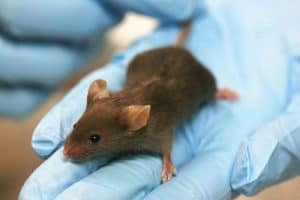EU set to pass stricter laws for experiments on animals
pharmafile | September 9, 2010 | News story | Research and Development | Animal testing, Animal tests
The number of animals used in scientific experiments will be reduced under new EU legislation agreed by the European Parliament and Council this week.
The legislation will require national authorities to assess the animal welfare implications of each experiment done, with a view to promoting alternative testing methods and reducing the levels of pain inflicted on animals.
The rules on the use of primates in scientific experiments will be tightened up, broadly banning the use of great apes such as chimpanzees, bonobos, gorillas and orangutans for scientific testing.
An original draft law by the Commission wanted to restrict the use of other primates such as ouistitis and macaques, but MEPs felt this could hamper scientific research into neurodegenerative illnesses such as Alzheimer’s and Parkinson’s.
Parliament and the European Council therefore agreed to allow the use of such primates if there is “scientific evidence that the goal of the test cannot be achieved without using these species”.
Current laws require all pre-clinical trials to involve a limited level of animal experimentation in order to build a safety profile before a drug is tested on humans.
The European Parliament’s intention is to strike a balance between animal welfare and the need for pre-clinical research and represents a compromise on a 25-year old EU Directive on the protection of laboratory animals.
The new legislation will also list different categories of pain that may be inflicted during a test and this will be based on the criteria: ‘non-recovery’, ‘mild’, ‘moderate’ or ‘severe’.
To avoid repeated suffering, the Commission proposed to allow the same animals to be re-used only if the test entails pain classed as up to ‘mild’.
The new law will also oblige national governments to ensure inspections are performed on at least a third of laboratories that use animals, some of which will be unannounced.
When enacted Member States will have two years to comply with the new rules.
Brian Ager, director general of the EU industry body EFPIA, said: “The Council and European Parliament have aimed to strike a balance between improving welfare and maintaining Europe’s medical research.
“Today’s agreement should bring direct and tangible animal welfare benefits and allow essential medical research to continue in Europe to deliver the new and innovative treatments that society wishes to see.”
Ager added however that EFPIA remained “disappointed” that a number of provisions ran the risk of creating “legal uncertainty” without bringing any welfare benefits.
Ben Adams
Related Content

Number of UK animal testing procedures falls to lowest level since 2007
A report from the Home Office of the UK Government has revealed that the prevalence …

FDA trial may help to cut the number of dogs used in clinical trials
A new study may help to significantly reduce the number of dogs that are used …
Minister calls for end of animal testing
British MP Norman Baker has called for an end to all animal testing in the …








